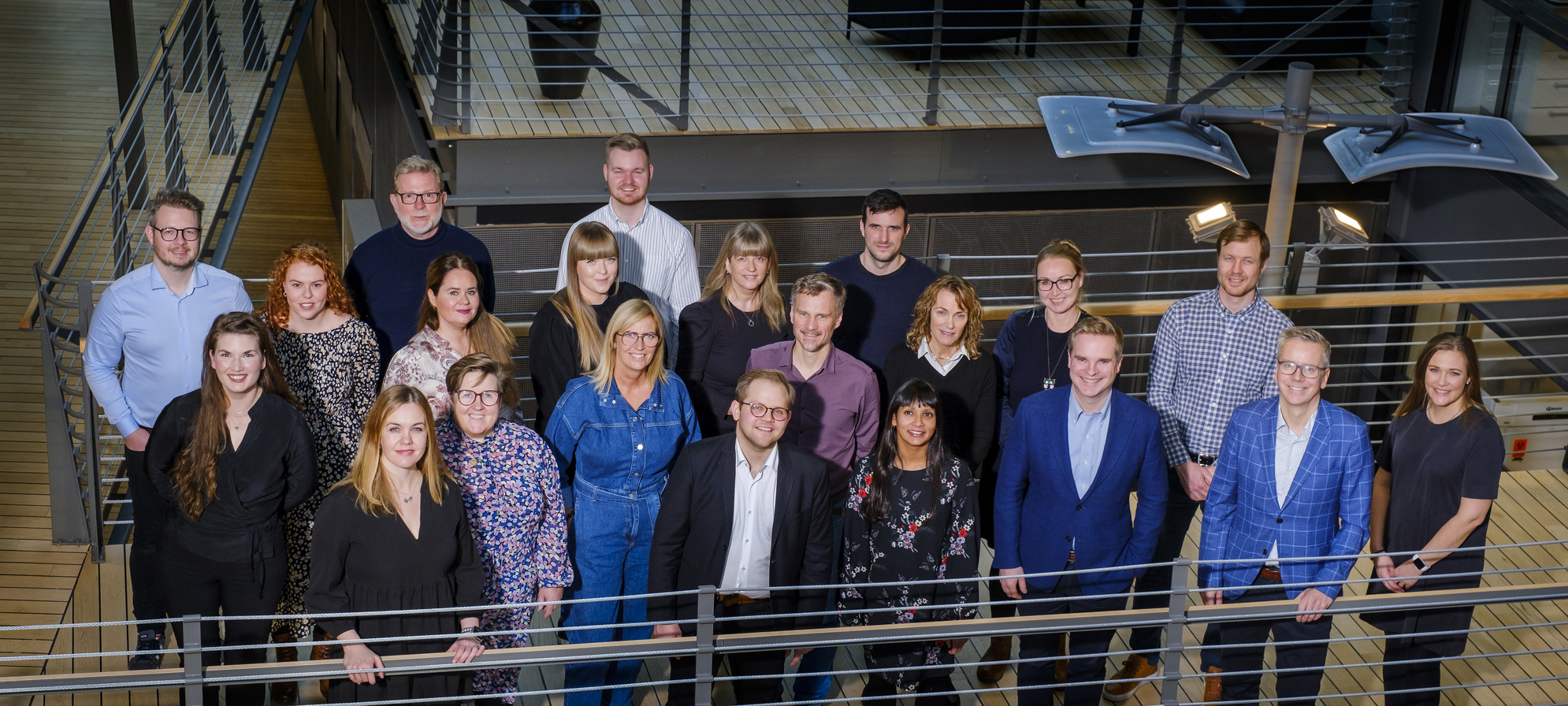Sigurður Yngvi Kristinsson, professor of hematology at the University of Iceland Faculty of Medicine and specialist at Landspítali University Hospital, has been awarded a grant of EUR 2 million, the equivalent of around ISK 290 million, from the European Research Council (ERC) in order to focus on smoldering myeloma in the project iStopMM – a national initiative to combat multiple myeloma. Over 3,600 people have been diagnosed with a multiple myeloma precursor condition. A drug trial for patients diagnosed with more a advanced condition has yielded extremely promising results. Multiple myeloma is an incurable cancer of the bone marrow. The cancer has certain precursor conditions: monoclonal gammopathy of undetermined significance (MGUS) and smoldering multiple myeloma (SMM), which can be easily detected with a simple blood test. The chances of MGUS developing into SMM are low, but the chances of SMM developing into multiple myeloma are very high. Generally, up to 97% of multiple myeloma cases are not diagnosed until the disease is already at an advanced stage. However, if multiple myeloma is caught early, the patient's prognosis is generally better. In recent years new drugs have been developed, revolutionising treatment and outcomes for the disease.
3600 diagnosed with MGUS and 300 with a more advanced condition
The national initiative iStopMM was launched in the autumn of 2016 as a collaboration between the University of Iceland, Landspítali University Hospital, the Icelandic Cancer Society and the Binding Site, and supported by the Black Swan Research Initiative. The goal of the study was to evaluate the impact of screening for multiple myeloma precursor conditions, investigate the causes and consequences of the disease and improve the lives of those diagnosed with multiple myeloma and seeking treatment.
The study, which is one of the largest in the world, is conducted by an interdisciplinary research team led by Sigurður Yngvi Kristinsson, professor of hematology at the University of Iceland Faculty of Medicine and specialist at Landspítali University Hospital. Everyone in Iceland born in 1975 or earlier was invited to take part and over 80,000 people gave informed consent.
About 75,000 samples have now been screened and just over 3,600 people have been diagnosed with MGUS, as well as almost 300 people with more advanced multiple myeloma or SMM. People with SMM are invited to take part in a treatment trial aimed at preventing the disease from progressing to multiple myeloma. Screening has made it possible to identify asymptomatic people and start drug treatment earlier than otherwise would have been possible. Participants diagnosed with MGUS are also offered monitoring.

The study, which is one of the largest in the world, is conducted by an interdisciplinary research team led by Sigurður Yngvi Kristinsson, professor of hematology at the University of Iceland Faculty of Medicine and specialist at Landspítali University Hospital. image/Kristinn Ingvarsson
Focusing on smoldering myeloma
The European Research Council has now awarded a five-year grant. This grant will be used to conduct further research on smoldering myeloma. All previous research into this precursor condition has been in patients who were diagnosed by chance. This means that important questions about the disease remain unanswered. "For this project, we will analyse all patients with SMM, diagnosed through iStopMM, with the aim of greatly improving our understanding and treatments based on early diagnosis and early intervention. Our primary goals are to increase understanding of the epidemiology and clinical behaviour of SMM, evaluate the mental wellbeing of participants in treatment or under observation, treat SMM to prevent multiple myeloma, and conduct basic research to develop new diagnostic methods and measure the response to treatment," says Sigurður Yngvi.
Almost 60 people have already started biopharmaceutical treatment for SMM. The earliest patients have now completed the treatment, which seems to have been highly effective and the patients have tolerated it well. "Using the latest drugs allows our patients to receive the best possible treatment for their condition. The part of the study that looks at quality of life is also important, because those results will help us find out how screening or awareness of potential disease can affect people's lives and wellbeing," adds Sigurður Yngvi.
Second grant from ERC in the face of stiff competition
This is the second grant that the European Research Council has awarded Sigurður Yngvi's project, following a grant of ISK 180 million in late 2016. The primary aim of the ERC is to support outstanding basic research in Europe. Competition for funding is fierce and there were over 2,600 proposals submitted this year. University of Iceland researchers have won four such grants over the last 15 years and Sigurður Yngvi is the first Icelandic research scientist to receive two of them. The research team behind iStopMM also received grants from the International Myeloma Foundation in the US and an excellence grant from the Icelandic Centre for Research. The project is entirely funded with grant money.
The ERC grant represents recognition of the incredible research that has already been completed and highlights the project's international importance. "This grant is hugely significant for the study and will enable us to bring more scientists on board, so we can guarantee that the research continues to be of a world-leading standard. We currently have 20 full-time employees on the project, as well as 5 PhD students, 4 postdoctoral researchers and around 20 co-researchers. I have no doubt that this incredible team of outstanding scientists will continue to break new ground in our understanding of multiple myeloma over the next months and years," says Sigurður Yngvi, who has previously received the Brian G.M. Durie Outstanding Achievement Award for his research on multiple myeloma.
Sigurður Yngvi says that the team is enormously grateful to the huge number of people who have contributed to the advancement of scientific knowledge and our society by consenting to participate in the study. "First and foremost, the research will create invaluable knowledge about MGUS and monitoring of this condition. The ability to diagnose multiple myeloma early will mean that future patients will receive a more accurate diagnosis than is currently possible. And multiple myeloma patients will receive the best available treatment at the optimal time. Participants diagnosed with MGUS will be monitored and patients with multiple myeloma will receive treatment earlier."




